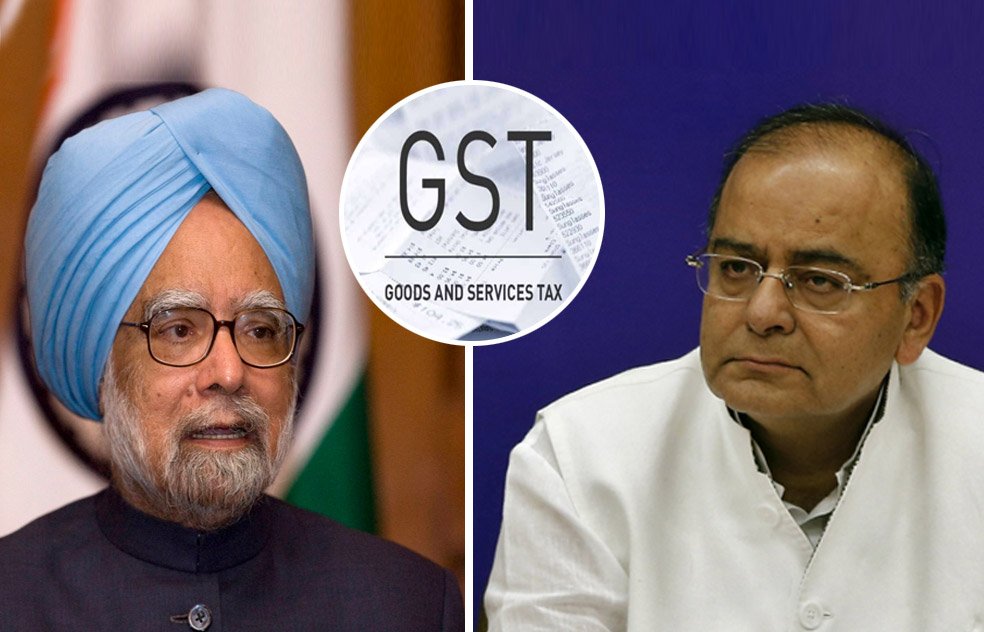
Rajya Sabha Passes 4 GST Bills, Possible Roll Out On July 1; Consensus Between BJP & Congress
7 April 2017 7:06 AM GMT
The Rajya Sabha on Thursday approved the four bills crucial for the implementation of the Goods and Services Tax (GST) that will possibly roll out on July 1 paving the way for the provision of a single tax regime, replacing multiple state and central taxes to create one national market.
The Lok Sabha in the last week had approved the four bills — Cental GST Bill, Integrated GST Bill, Union Territories GST bill, and Compensation law. State legislatures will now have to approve the SGST bill (state goods and services tax).
Finance Minister Arun Jaitley said that once the new regime is implemented, it would end the harassment of businesses by different authorities, and India will have one rate for one commodity throughout the country. He also said that successive governments have contributed towards GST and no one person can take credit for it.
“On May 17-18 we will give final approval to rules and rates… Looks like it can be implemented from July 1,” Jaitley told reporters after the Rajya Sabha cleared the Central GST Bill, 2017; The Integrated GST Bill, 2017; The GST (Compensation to States) Bill, 2017; and The Union Territory GST Bill, 2017.
The Rajya Sabha on Thursday also witnessed a rare consensus between Centre and Congress, as the main opposition party didn’t seek for amendment listening to the advice of former Prime Minister Manmohan Singh.
As soon as the four bills were cleared, Mr Jaitley walked up to Singh and shook his hands.
Manmohan Singh termed the move a game changer. “It could be a game changer but can’t assume there will be no difficulties on the way,” the former PM said after the bills were passed.
What is the GST?
The GST is an indirect tax that brings most of the taxes imposed on goods, services, manufacturing, and consumption of goods and services under a single domain at the national level. It will change the taxation that is levied separately on goods and services and will introduce a consolidated tax based on a uniform rate of tax fixed for both goods and services. It will be payable at the final point of consumption.
Under GST, all the taxes will be integrated. Hence, it will be possible to bring transparency in the levying of taxes and the burden of taxation will be shared equally between manufacturing and services. According to experts, by implementing the GST, India will gain $15 billion a year. This is because, it will promote more exports, create more employment opportunities and boost growth.
The entire Indian market will be a unified market which may translate into lower business costs. It can facilitate seamless movement of goods across states and reduce the transaction costs of businesses. Companies that are under unorganised sector will come under the tax regime.
The Rajya Sabha approved the following bills:
1. The Integrated Goods and Services Tax Bill 2017: Levy and collection of tax on inter-state supply or goods or services or both by the Central Government;
2. The Goods and Services Tax (Compensation to the States) Bill 2017: Compensation to the states for loss of revenue arising on account of implementation of the GST for a period of five years;
3. The Union Territory Goods and Services Tax Bill 2017: Levy and collection of tax on intra-UT supply of goods and services in the Union Territories without legislature;
4. The Central Goods and Services Tax Bill 2017: Levy and collection of tax on intra-state supply or goods or services or both.
Also Read: Know About The 4 GST Bills Cleared By The Cabinet, Could Become Part Of Taxation From July 1
 All section
All section













